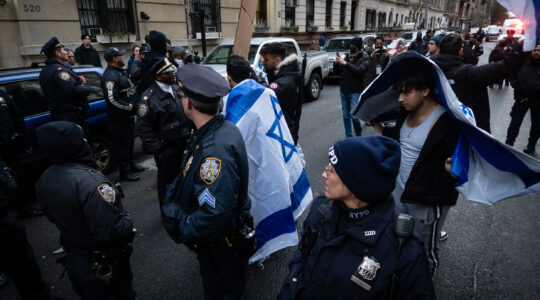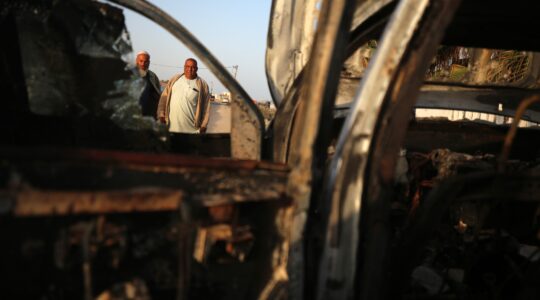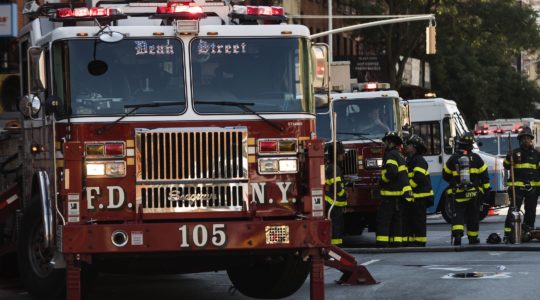WASHINGTON, Jan. 11 (JTA) — New security regulations imposed after Sept. 11 could keep hundreds of Jewish refugees stranded in Europe for months. Many of the refugees already have been waiting in Moscow and Vienna for entry into the United States. After the attacks on the World Trade Center and Pentagon, all refugee interviews and processing stopped because of security issues. Processing and admissions have started up again, but at a very slow pace, activists say. The cessation — the first in U.S. history — was part of the United States´ general re-evaluation of immigration policies after Sept. 11. While the moratorium was still in place, Leonard Glickman, president of the Hebrew Immigrant Aid Society, called it "an overreaction" from the federal government. The annual review of how many refugees will be admitted this year was completed on Nov. 21 and approved by President Bush, two months later than normal. But there was no movement on the refugees until December, when new security rules were finalized. As a result, only 61 HIAS-sponsored refugees were admitted to the United States in the last three months of 2001. By comparison, 1,995 HIAS-sponsored refugees were admitted during the same period in 2000. "We´re waiting for the U.S. system to get unstuck," said Gideon Aronoff, Washington representative for HIAS. In November, 470 people in Moscow and 119 refugees in Vienna who had been approved for admission to the United States were awaiting the lifting of the moratorium, according to HIAS. In addition, the cases of more than 200 Jewish refugees who had yet to be approved for admission were pending in Vienna. Jewish leaders and heads of other refugee organizations have met with White House officials and State Department officials several times recently to press for a speedy admittance of the refugees. The Bureau of Population, Refugees and Migration at the State Department says it is moving as quickly as possible given the new security procedures. Airplane flights of refugees, which in the past have held hundreds of people, now are limited to 30 passengers. New arrivals are fingerprinted at their point of entry and name checks are performed against the databases of various intelligence community and law enforcement agencies. The new security procedures may be changed in the future, but a State Department official would say only that the procedures are under evaluation.
Moratorium on refugees lifted
Advertisement





